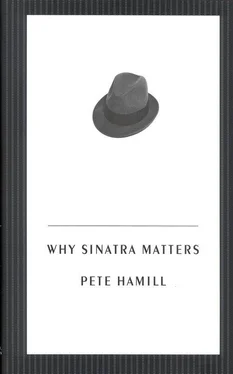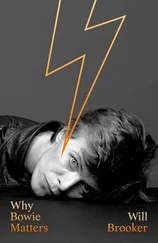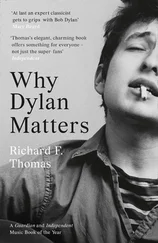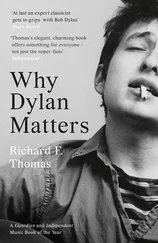II. It should never be forgotten that Sinatra came to consciousness during Prohibition. He was four years old when the Eighteenth Amendment went into effect at midnight on January 16, 1920. The weather in the New York area was bitterly cold, the temperatures down to six degrees above zero. Many saloons arranged farewell parties, with black-bordered invitations reading “Last rites and ceremonies attending the departure of our spirited friend, John Barleycorn.” The Noble Experiment was about to change life in America, but not in ways its bluenosed adherents suspected.
“Prohibition was the dumbest law in American history,” Sinatra said one night. “It was never gonna work, not ever. But what it did was create the Mob. These dummies with their books and their investigations, they think the Mob was invented by a bunch of Sicilians in some smoky room someplace. Probably in Palermo. Bullshit. The Mob was invented by all those self-righteous bastards who gave us Prohibition. It was invented by ministers, by Southern politicians, by all the usual goddamned idiots who think they can tell people how to live. I know what I’m talking about on this one. I was there.”
Yes, he was. From ages four to eighteen, Sinatra watched the story of Prohibition unfold all around him, most clearly within his own family. In his own kitchen he heard the justifications and rationalizations for breaking what was perceived to be an unjust law. It is no accident that he later became a fan of The Great Gatsby, which was driven by the romantic image of the bootlegger. In Hoboken (as in other immigrant communities), one of the specific rationalizations was that the Eighteenth Amendment was a betrayal of the men who fought World War I. The timing of its passage was all wrong. The Great War had succeeded in making many young Italians feel more like Americans. The draft took them out of the ghettos and allowed them to meet young men from all over the country. Some were treated harshly by isolated bigots. Most forged friendships that lasted a lifetime. There is nothing like fighting in a foreign war to erode parochialism. Italian Americans had died for their country — the United States of America. They had been wounded. They had been gassed. They had earned the right to be called Americans.
Back home, in all the Hobokens of America, those who did not become warriors succumbed to the immensely successful propaganda campaign designed by the Wilson administration to convince immigrants and their children to fight in a European war. The nativist cliché about divided loyalties made life miserable for German Americans but didn’t apply to the Italian kids. In that war, Italy was an ally of the United States, and its armies fought bravely, even after the disastrous defeat at Caporetto in 1917 (one casualty on the Italian side in that fierce battle was a young American volunteer ambulance driver named Ernest Hemingway). At home, there was a prolonged fever of flag-waving, drum-beating patriotism, and Sinatra remembered hearing Caruso’s recording of “Over There.”
“In the parade, when the war ended, there were guys from the block, from the neighborhood,” Sinatra remembered later. “They were wearing American uniforms, not Italian uniforms. When Caruso sang ‘Over There,’ he could have been them.”
The young men of Hoboken came home with all the other Americans to find that their country was less free than when they had departed. Suspect immigrants were being rounded up and deported as the result of the Red Scare, the first of the recurrent waves of hysteria over “foreign” ideologies. Worse, the Eighteenth Amendment had been passed while the soldiers were gone. The temperance forces were triumphant, a strange alliance of Bible-whacking fundamentalists, addled nativists, women suffragists, old line WASPs. Some, as always, had good intentions but did not see that their chosen path would lead to just another kind of hell. On the street level, the Noble Experiment was widely perceived as an additional attempt to tame, or cage, the immigrants and their children; most Prohibitionists also supported harsh new restrictions on immigration, some of them (against Asians) plainly racist, the rest directed at the people of southern Europe. This was all part of a wide national reaction against the teeming American cities, which were perceived as centers of vice and immorality, filling up with too many foreigners, too many Catholics and Jews.
There were intelligent voices raised against Prohibition, saying that it was a restriction on personal liberty, which it was, and doomed to lead to widespread corruption, which it did. Many agreed with the New York madam Polly Adler, who said about enforcing these invincibly stupid laws: “They might as well try to dry up the Atlantic with a post office blotter.” Madams, alas, know more about human nature than do ministers. In New York City on the eve of Prohibition, there were 15,000 places where a man could get legally drunk; within a few years there were 32,000 speakeasies providing the same service in defiance of the law. The same phenomenon was true in New Jersey. And Dolly Sinatra was to open her own speakeasy on the corner of Fourth Street and Jefferson in Hoboken. She called it Marty O’Brien’s.
“It was supposed to be a restaurant,” Sinatra remembered. “And you could get some pasta there, or a sandwich. But it was really a saloon. She didn’t call it Mama Sinatra’s, remember; she called it Marty O’Brien’s. You’re Irish: would you go to a place called Marty O’Brien’s for the food? ”
Years later, while delivering the Libby Zion lecture at Yale Law School, Sinatra remembered that his father worked for a while for the early bootleggers, who made their runs north to Canada to pick up shipments of whiskey. (My father took a few similar runs himself, to the depots of Lake George.) As a prizefighter, even a mediocre one, Marty Sinatra would be a natural form of muscle.
“He was one of the tough guys,” Sinatra recalled. “His job was to follow trucks with booze so that they weren’t hijacked. I was only three or four, but I remember in the middle of the night I heard sounds, crying and wailing. I think my old man was a little slow, and he got hit on the head. Somebody opened up his head, and he came home and was bleeding all over the kitchen floor. My mother was hysterical. After that, he got out of that business. They opened a saloon.”
Dolly Sinatra was able to run that saloon because of her political connections. She was naturally gregarious, full of spirit and jokes, equipped with a bawdy sense of humor. That made her a perfect bartender. But it was her political talents that gave her the freedom to run the place itself. She spoke the natural, rushed American English of the New York area, which allowed her to communicate easily with the Irish political bosses. She had mastered a number of Italian dialects, which made her a perfect go-between in the neighborhood between baffled individuals and the agents of the state. She knew how to get a lawyer or a tax accountant or a bailbondsman. She showed up at weddings and wakes. She was generous with her personal time, repeatedly helping those neighbors who were less fortunate than the Sinatras. But she was also a realist. She had learned how the world works and looked at it clearly. Niccolò Machiavelli, the philosopher of political lucidity, would have loved Dolly Sinatra. Yes, there was a part of her that wanted the world to be better, an idealistic streak that would reach fruition during the New Deal. But in the days of Prohibition, she was more concerned with living in the world as it was. And prospering in it.
That obviously meant knowing some of the bootleggers. Not all were Italian. The Mob was not a synonym for the Mafia. It was an alliance of Jews, Italians, and a few Irishmen, some of them brilliant, who organized the supply, and often the production, of liquor during the thirteen years, ten months, and nineteen days of Prohibition. The most famous of the original Mob chieftains were Lucky Luciano, Meyer Lansky, Ben (Bugsy) Siegel, Frank Costello, and Longie Zwillman. Their alliance — sometimes called the Combination but never the Mafia — was part of the urgent process of Americanizing crime. (Sinatra, in my conversations with him, sometimes employed the word Mob when referring to the gangsters of the era but usually called them “the boys.”) The young Italians among them believed that it was foolish to abide by the old Sicilian traditions of excluding non-Sicilians in the name of honor and respect. Luciano, after all, was from Naples, not Sicily. Those traditional notions, the strict and narrow codes of men now patronizingly called Mustache Petes, were too vague, too old-fashioned, too rigid a part of la via vecchia . This was America; you worked with any nationality if it was in your common interest.
Читать дальше












